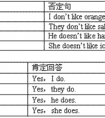Why not the Great Wall? [ ]A. consider visit B. consider visiting C. considering visiting D. consider to visit -九年级英语
2. 用 it 作形式主语,把动名词(真实主语)置于句尾作后置主语。
动名词做主语时,不太常用 it 作先行主语,多见于某些形容词及名词之后。例如:
It is no use telling him not to worry.
常见的能用于这种结构的形容词还有:better,wonderful,enjoyable,interesting,foolish,difficult,useless,senseless,worthwhile,等。
注意:important,essential,necessary 等形容词不能用于上述结构。
3. 用于“There be”结构中。例如:
There is no saying when he'll come.很难说他何时回来。
4. 用于布告形式的省略结构中。例如:
No smoking ( =No smoking is allowed (here) ). (禁止吸烟)
No parking. (禁止停车)
5. 动名词的复合结构作主语
当动名词有自己的逻辑主语时,常可以在前面加上一个名词或代词的所有格,构成动名词的复合结构
(这时,名词或代词的所有格做动名词的逻辑主语)。
动名词的复合结构也可以在句中作主语。例如:
Their coming to help was a great encouragement to us.
二、动名词作宾语
1.作动词的宾语
某些动词后出现非限定性动词时只能用动名词作宾语,不能用不定式。常见的此类动词有:
admit, appreciate, excuse, stand, advise, allow, permit, avoid, consider, enjoy, finish
They went on walking and never stopped talking.他们继续走,说个不停。
I found it pleasant walking along the seashore.在海滩上走真是乐事。
Mark often attempts to escape being fined whenever he breaks traffic regulations.
每当马克违反交通规则时,他常常企图逃避罚款的处分。
2.作介词的宾语
We are thinking of making a new plan for the next term. 我们正考虑为下学期制定新的计划。
Shall we have a rest or get down to doing our work? 我们休息呢还是开始干活?
3.作形容词的宾语
The music is well worth listening to more than once. 这种曲子很值得多听几遍。
We are busy preparing for the coming sports meet. 我们正为马上到来的运动会忙着做准备。
三、动名词作表语
动名词作表语时句子主语常是表示无生命的事物的名词或what引导的名词性从句。
表语、动名词与主语通常是对等的关系,表示主语的内容,主语、表语可互换位置。
Your task is cleaning the windows. 你的任务就是擦窗户。
(Cleaning the windows is your task.)
What I hate most is being laughed at. 我最痛恨的就是被别人嘲笑。
(Being laughed at is what I hate most.)
四、动名词作定语
动名词作定语往往表示被修饰词的某种用途。如:
a walking stick =a stick for walking=a stick which is used for walking
a washing machine=a machine for washing=a machine which is used for washing
a reading room=a room for reading=a room which is used for reading
a measuring tape=a tape for measuring=a tape which is used for measuring
sleeping pills=pills for sleeping=pills which is used for sleeping
动名词也有时态和语态的变化,如表所示(以及物动词write为例),不及物动词没有语态的变化。
| 时态、语态 | 主动 | 被动 |
| 一般式 | writing | being written |
| 完成式 having written |
having been written |
1) 动名词做主语时,谓语动词为单数
2) 在动名词和不定式中,作为介词的宾语是动名词
3) 动名词的否定直接在其前加否定词,通过代词的宾格或所有格形式给出逻辑主语
例:I would appreciate you calling back this afternoon.
4) 有些词后只能接动名词
acknowledge;admit; advise;advocate;allow;appreciate; avoid; celebrate; consider; contemplate; defer; delay; deny;
detest; discontinue; dislike; dispute; enjoy; it entails; escape; excuse; explain; fancy; feel like; finish; forgive; can’t help;
hinder; imagine; it involves; keep; it means; mention; mind; miss; it necessitates; pardon; postpone; practice; prevent;
recall; report; resent; resist; risk; suggest; understand...
5) 另外还有一些接-ing形式的常用说法
it’s no good; it’s no/little/hardly any/ use; it’s not/hardly/scarcely use; it’s worthwhile; spend money/time; there’s no;
there’s no point in; there’s nothing worse than; what’s the use/point
6) 有些词后面加不定式和动名词均可
remember,forget,try,stop,go on,continue,stop,regret,cease,mean后面均可用不定式和-ing形式,但意义截然不容。
例:remember to do/doing:
①I remembered to post the letters.(指未来/过去未来将要做的动作)
②I remembered posting/having posted the letters.(我记得做过这个动作)
forget与remember的用法类似。
regret的用法:
①I regret to inform you that…(我很遗憾地通知你……)
②I regretted having left the firm after twenty years.(为了“二十年前的离开”而遗憾。)
try to(努力)与try +–ing(试验):
①You really must try to overcome your shyness.
②Try practicing five hours a day.
考点名称:疑问词组
- 疑问词组:
即使由疑问词和一些词一起构成的表示疑问的词组。由how/what与另外一个词组成的词组。
例如:
how many (后接可数名词,多少), how much (后接不可数名词,多少),
how often (表示频率), what if (如果…将会怎么样),
what about (…怎么样), what time (几点) 与how搭配的疑问词组:
How在英语中通常用作副词,是特殊疑问句中本领最大的疑问词。他与其它形容词或副词搭配组成疑问词组
1.How old问年龄、年代。
How old is your friend? 你朋友多大了?
How old is the bridge? 这座桥有多少年代了?
2.How many问可数名词数量。常将可数名词复数紧随其后。如:
How many pictures are there on the wall? 墙上有多少幅画?
How many glasses of milk would you like? 你们想要几杯牛奶?
3.How much询问不可数名词的数量、物品的价格。
How much money is there in the purse? 钱包里有多少钱?
How much are the apples at the moment? 目前苹果什么价钱?
4.How long提问物体的长度、时间的长短。
How long is the Changjia River? 长江有多长?
How long does it take you to do your homework every day?
你每天花多长时间做作业?
5.How soon 对 “in+一段时间 ”提问, 表示“多久之后”。
How soon will you be back? 你多久后回来?
6.How often对表示频率的副词或短语提问。
How often does Mrs. Green go shopping? 格林夫人多久去购一次物?
7.How about用来征求对方意见。
Your father is a worker, how about your mother? 你父亲是工人,你母亲呢?
How about playing games after school this afternoon? 下午放学后做游戏怎么样?
8.How far 问两地间的距离How tall问人(树)的高度;how heavy问重量;how wide问宽;how high可以询问建筑物、山峰高度。
How far is it from the earth to the moon? 从地球到月球有多远?
How tall is Yao Ming? 姚明身高多少?
How heavy is that big box? 那只大箱子有多重?
How wide is the new street? 这条新街有多宽?
How high is the tower in Paris? 巴黎的那座塔有多高?
与what搭配的疑问词组:

![Which of the following can you probably see in the meeting room? [ ]A. B. C.D. -七年级英语](http://www.00-edu.com/d/file/ks/4/2/dongmingci/2020-01-08/small97361980a56115e1c9237567439904fe1578422951.jpg)

![—Can the boy finish_____ the book in about a week? —I think he can. [ ]A. read B. reading C. to read D. reads -八年级英语](http://www.00-edu.com/d/file/ks/4/2/dongmingci/2020-01-08/smallfa4d713075e249356362fe7392193a301578421751.png)


